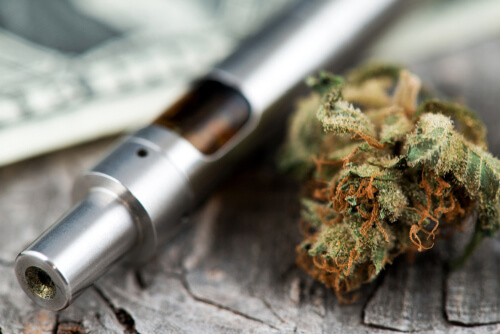
Sleeping disorders are a common problem that can affect people of all ages and have a negative impact on their quality of life.
Many people turn to medications or other treatments to help improve their sleep, but these options can have side effects or may not be suitable for everyone.
Cannabidiol (CBD) is a chemical compound found in the cannabis plant that has been studied for its potential to treat a range of health conditions, including sleep disorders.
What Is CBD And How Does It Work?
CBD is one of many chemical compounds known as cannabinoids that are found in the cannabis plant.
Unlike the psychoactive compound THC, CBD is non-intoxicating and does not produce a high.
CBD interacts with the body’s endocannabinoid system, which helps to regulate various functions such as sleep, appetite, and mood.
What Is The Evidence For Using CBD To Treat Sleep Disorders?
There have been a number of studies on the use of CBD for sleep disorders, but the results have been mixed.
Some studies have found that CBD may have sedative effects and may help to improve sleep in people with conditions such as insomnia and REM sleep behavior disorder.
However, more research is needed to fully understand the effectiveness and safety of CBD for sleep disorders and to determine the optimal dosage and duration of use.
Are There Any Risks Or Side Effects Associated With Using CBD For Sleep Disorders?
CBD is generally considered to be safe, but like any medication or supplement, it can cause side effects in some people.
The most common side effects of CBD include dry mouth, drowsiness, and changes in appetite and weight.
It is important to speak with a healthcare professional before starting any new treatment, including the use of CBD. They can help you understand the potential risks and benefits and advise you on the appropriate use of CBD or any other treatment.
Conclusion
While the evidence for using CBD to treat sleep disorders is limited, some studies have suggested that it may have potential as a treatment option. It is important to note that CBD is not a regulated substance, and the quality and purity of CBD products can vary widely.
More research is needed to fully understand the effectiveness and safety of CBD for sleep disorders and to determine the optimal dosage and duration of use.
It is always a good idea to speak with a healthcare professional before starting any new treatment, including the use of CBD. They can help you understand the potential risks and benefits and advise you on the appropriate use of CBD or any other treatment.

